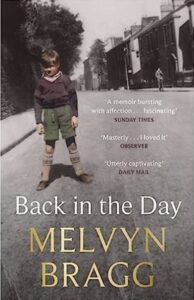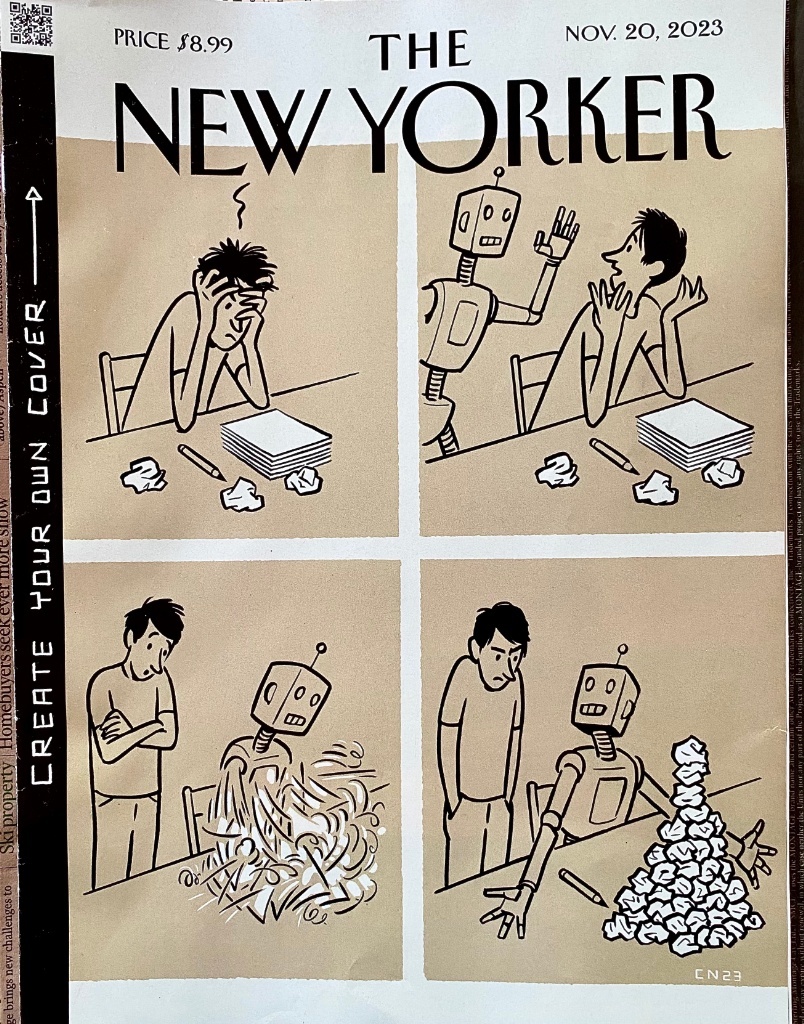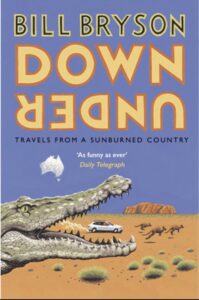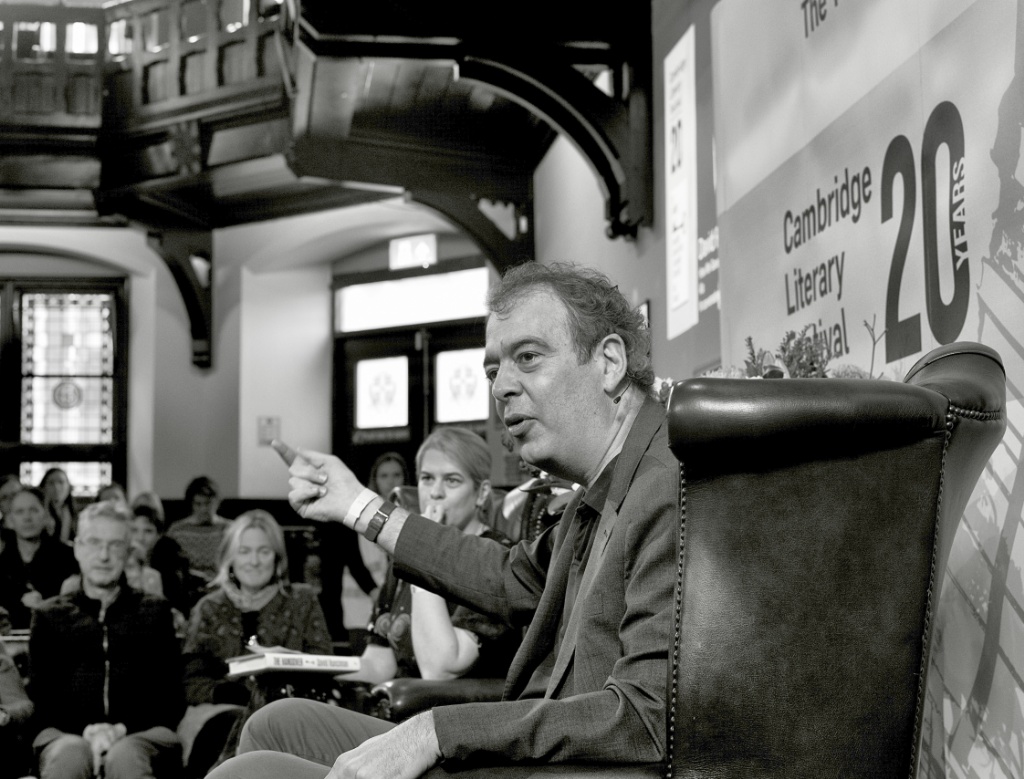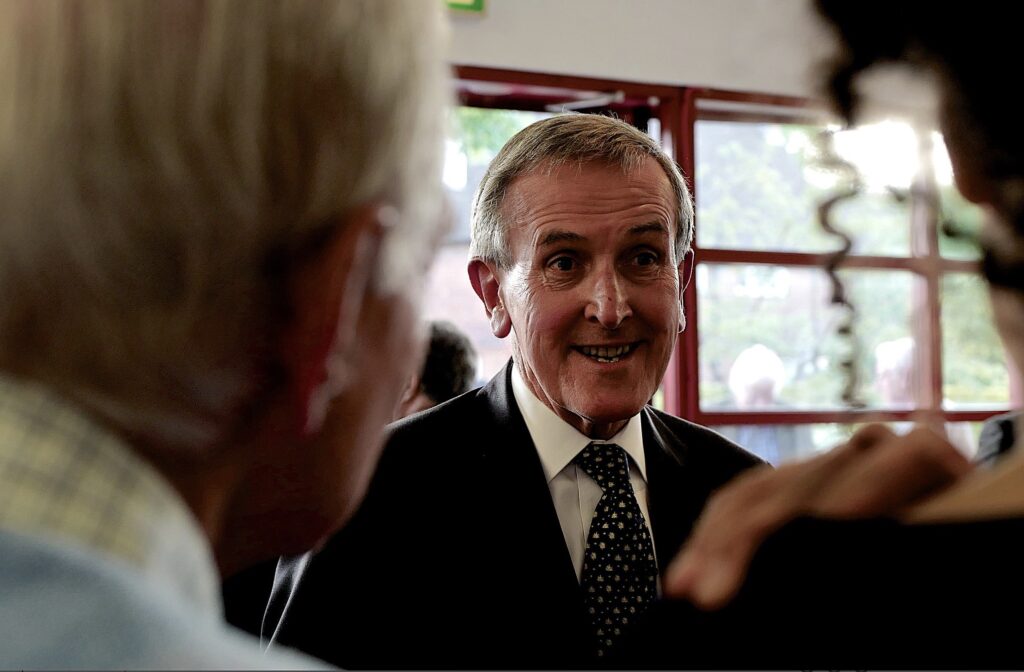London’s other East End

Gerrard Street yesterday.
Quote of the Day
”Too much of anything is bad, but too much good whisky is barely enough.”
- Mark Twain (Especially if it’s a good single malt.)
Musical alternative to the morning’s radio news
Vince Gill | Price of Regret at the Oklahoma Hall of Fame Ceremony
The intro is interesting, but if you’re in a hurry he starts singing at 3:26.
Long Read of the Day
The EU AI Act and Greek Mythology
René Walter’s distinctive take on the forthcoming (and potentially powerful) EU legislation.
It’s a nice riff on a recent lecture by Stephen Fry about ‘AI’.
Fry presents us with the choice of whether we want to be the fire-giving god Prometheus, giving humans the spark of artificial intelligence, or the father of gods, Zeus, with strict regulations in the face of the upcoming, especially AI-based technological leaps that are emerging: Deep learning algorithms recently computed 2.2 million new crystal structures, “800 years’ worth of knowledge,” which can be used for novel technologies and innovations, such as in the production of solar panels. Another study confirms the abilities of large language models in the discovery of new molecules for pharmaceutical research, promising new and (possibly) cheaper drugs. A study from July on the acceleration of scientific research with AI found that artificial intelligence systems explicitly trained on human interferences in the research process — those rare Einsteins proposing completely novel theories — increased the prediction of these AI systems for future discoveries by 400%.
These things are possible today.
Walter is in favour of us playing Zeus, though he would spare Prometheus’s liver. The essay provides some relief from the cacophony about the technology. Hope you enjoy it.
Books, etc.

I’m tempted by this after listening to Burns talking about it with Tyler Cowen on an interesting podcast. It’s £45, though. Hmmm…
My commonplace booklet
(Spoiler alert: this is about golf, which I’m sure some readers regard as a way of ruining a nice country walk.)
I was an avid golfer from the age of 11 until I went to Cambridge in 1968, when I decided that it would be impossible to play regularly enough to be considered for the University team and do any academic work. One of my schoolmates, Ivan Morris, came to the sport later than me but rapidly mastered it and was a distinguished scratch golfer for decades.
Unlike many gifted players, though, he’s also been an astute commentator on it, and in recent years has become a fierce critic of the way the sport has been perverted by money and by the malign influence of equipment manufacturers. One of the consequences of this is that players like Rory McIlroy and Jon Rahm now drive the ball so far that championship golf courses are having to be continually lengthened so that they do not become pitch-and-putt toys for these guys.
Now the governing bodies of the sport have decided that Something Has To Be Done. They’ve decided that by 2030 the aerodynamics of golf balls will have to be modified so that they travel less far in the air.
Ivan is not much impressed by this, as his latest column in Irish Golfer makes clear.
Elite golf is not very interesting or exciting anymore; it’s about slamming the ball as far as possible and turning the game into a putting contest. There used to be a lot more to it than that. In modern golf, the ability to hit the same shot over and over is more important than the ability to play different (types of) shots. Top players must be bored to tears with the game they are asked to play for a living, and it is no fun to watch either. There was a time when the driver was the most difficult club in the bag to control. Now, it’s so forgiving one can blaze away without hardly a care in the world. The game has been manipulated by the ball and equipment manufacturers to a state where it has become too easy for pros while remaining more or less as difficult as ever for the club golfer.
Right on.
Linkblog
Something I noticed, while drinking from the Internet firehose.
Free and liberated ebooks, carefully produced for the true book lover.

Standard Ebooks is a volunteer-driven project that produces new editions of public domain ebooks that are lovingly formatted, open source, free of U.S. copyright restrictions, and free of cost.
Ebook projects like Project Gutenberg transcribe ebooks and make them available for the widest number of reading devices. Standard Ebooks takes ebooks from sources like Project Gutenberg, formats and typesets them using a carefully designed and professional-grade style manual, fully proofreads and corrects them, and then builds them to create a new edition that takes advantage of state-of-the-art ereader and browser technology.
Standard Ebooks aren’t just a beautiful addition to your digital library—they’re a high quality standard to build your own ebooks on. Looks interesting and imaginative. I’ve been thinking of them for Xmas presents.
H/T Jason Kottke (Whom God Preserve).
This Blog is also available as an email three days a week. If you think that might suit you better, why not subscribe? One email on Mondays, Wednesdays and Fridays delivered to your inbox at 6am UK time. It’s free, and you can always unsubscribe if you conclude your inbox is full enough already!


